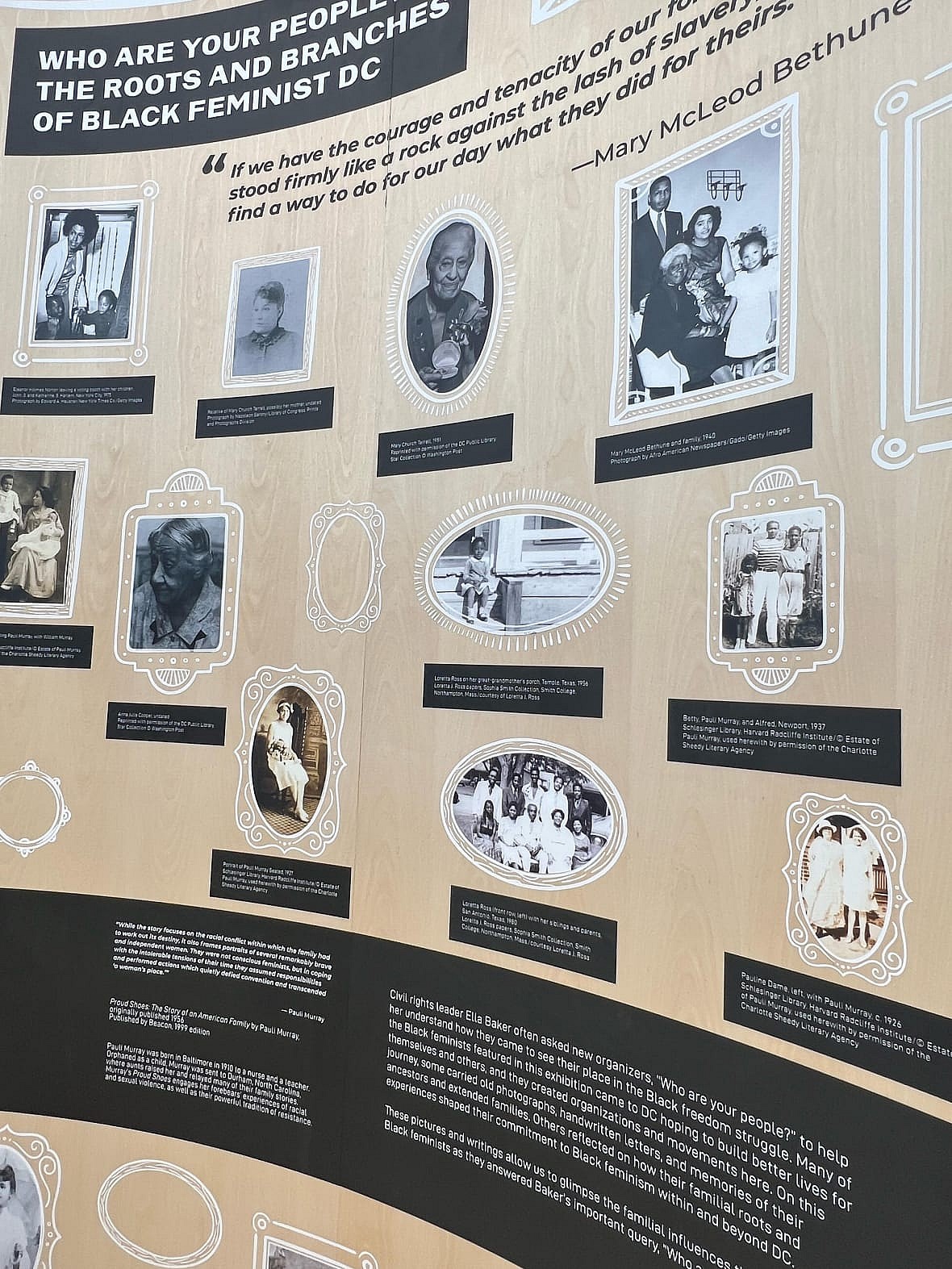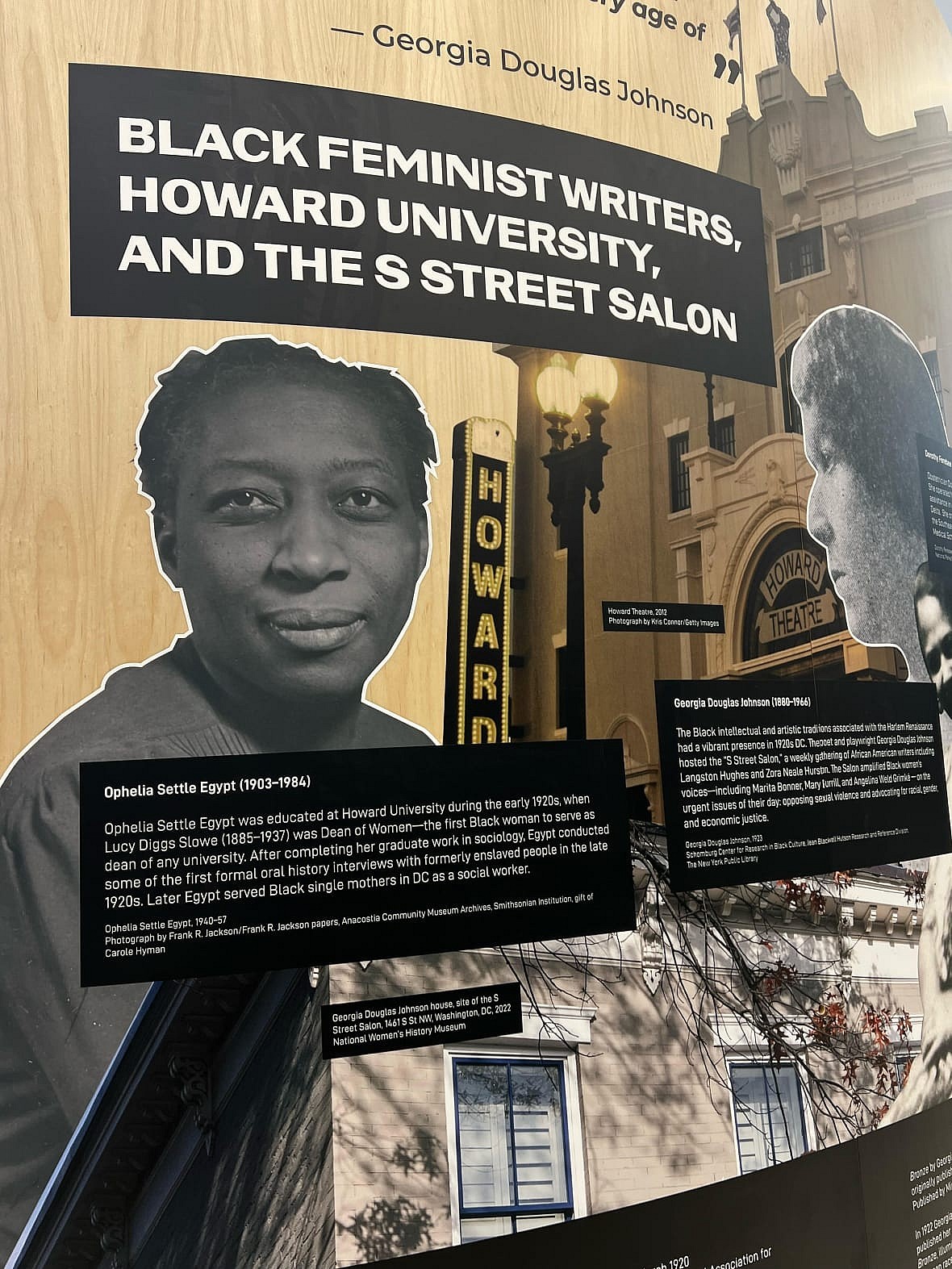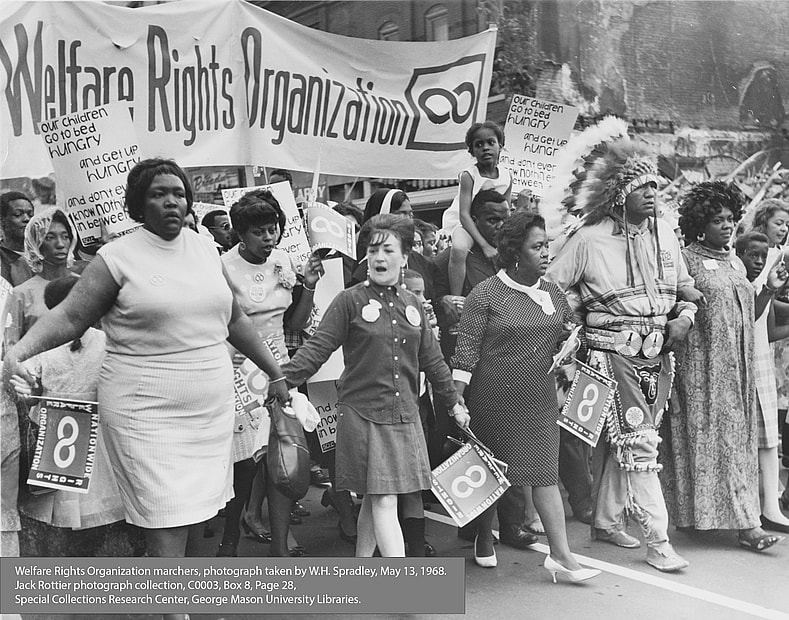The National Women’s History Museum has curated an exhibit that honors the voices of Black female activists in the capital city, The Washington Post reports.
Historians Sherie M. Randolph and Kendra T. Field curated “We Who Believe in Freedom: Black Feminist DC.” It pays homage to feminist organizers and theorists such as Anna Julia Cooper, Eleanor Holmes Norton, Mary Treadwell and Nkenge Touré, according to the museum’s news release. These women made significant contributions to the lives of Black women in their respective Washington, D.C. communities and to the lives of people across the country.

On display at the Martin Luther King Jr. Memorial Library in Washington, D.C. until Fall 2024, the new exhibit has various features, including an interactive touchscreen that displays a biography of each woman, according to The Post. Also, a colorful array of panels lines the aisles showing detailed descriptions of each woman’s achievements. A special online exhibition expands on these stories.

They include that of Howard University Law School graduate Pauli Murray, one of the founders of the National Organization for Women. Supreme Court Justice Thurgood Marshall referred to her 746-page book, “States’ Laws on Race and Color,” as “the bible” of Brown vs. Board of Education, according to her bio on the National Women’s History Museums’ website.
Ophelia Settle Egypt, a Howard University-trained sociologist, conducted some of the first oral history interviews with formerly enslaved people in the late 1920s. She also worked as a social worker, championing the cause of Black single mothers in the District.
“It’s more important than it’s ever been in my lifetime to make sure men and women and boys and girls all understand the unbelievable intersection of the hard work that women have led in our history,” said Susan Whiting, chair of the National Women’s History Museum, The Post reports.

Randolph concurs. “Black women’s blueprint is sometimes wiped away,” she said, noting that this forgotten history should not derail the ongoing work toward ending oppression. “You keep pushing the ball up the hill. At times, the ball falls back down, but at times they get somewhere. We don’t want to forget where they’re going.”
Whiting hopes visitors walk away from the exhibit surprised and in awe of these “diverse women” in “medicine to literature to civil rights,” she said. “They impacted who we are, how we live today.”

TheGrio freelance reporter Ny Magee contributed to this article.
TheGrio is FREE on your TV via Apple TV, Amazon Fire, Roku and Android TV. Also, please download theGrio mobile apps today!

